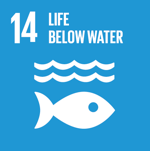What are the Sustainable Development Goals?
The Sustainable Development Goals (SDGs), otherwise known as the Global Goals, are a universal call to action to end poverty, protect the planet and ensure that all people enjoy peace and prosperity.
These 17 Goals build on the successes of the Millennium Development Goals, while including new areas such as climate change, economic inequality, innovation, sustainable consumption, peace and justice, among other priorities. The goals are interconnected – often the key to success on one will involve tackling issues more commonly associated with another.
The SDGs work in the spirit of partnership and pragmatism to make the right choices now to improve life, in a sustainable way, for future generations. They provide clear guidelines and targets for all countries to adopt in accordance with their own priorities and the environmental challenges of the world at large. The SDGs are an inclusive agenda. They tackle the root causes of poverty and unite us together to make a positive change for both people and planet. “Supporting the 2030 Agenda is a top priority for UNDP,” said UNDP Administrator Helen Clark. “The SDGs provide us with a common plan and agenda to tackle some of the pressing challenges facing our world such as poverty, climate change and conflict. UNDP has the experience and expertise to drive progress and help support countries on the path to sustainable development.”
For more information on the background of the SDGs, click here.
What is UNDP's role?
The SDGs came into effect in January 2016, and they will continue guide UNDP policy and funding for the next 15 years. As the lead UN development agency, UNDP is uniquely placed to help implement the Goals through our work in some 170 countries and territories.
Our strategic plan focuses on key areas including poverty alleviation, democratic governance and peacebuilding, climate change and disaster risk, and economic inequality. UNDP provides support to governments to integrate the SDGs into their national development plans and policies. This work is already underway, as we support many countries in accelerating progress already achieved under the Millennium Development Goals.
Our track record working across multiple goals provides us with a valuable experience and proven policy expertise to ensure we all reach the targets set out in the SDGs by 2030. But we cannot do this alone.
Achieving the SDGs requires the partnership of governments, private sector, civil society and citizens alike to make sure we leave a better planet for future generations.
For more resources related to the SDGs, click here.
The global goals in Africa
Besides the 2030 Agenda, African countries have committed to implement the African Union Agenda 2063, which is both a vision and a plan to build a more prosperous Africa in 50 years. The 2030 Agenda for Sustainable Development acknowledges the importance of the AU Agenda 2063 and considers it an integral part of it.
Africa has made significant progress on the Millennium Development Goals, including enrolling more children in primary school, particularly girls, increasing the representation of women in national parliaments, and reducing child and maternal deaths and the proportion of people infected with HIV.
Building on this progress, several countries are already taking steps to translate the ambitions articulated in the 2030 Agenda into tangible outcomes for their people; they are beginning with integrating the SDGs into their national visions and plans.
- In Angola, Ethiopia and South Africa, working with the UN Country Teams, UNDP has provided support to raise awareness about the SDGs among government officers, members of Parliaments, civil society and private sector actors.
- Uganda was one of the first countries to develop its 2015/16–2019/20 national development plan in line with the SDGs. The Government estimates that 76 per cent of the SDGs targets are reflected in the plan and adapted to the national context. The UN Country Team has supported the government to integrate the SDGs also into sub-national development plans, in line with the national plan.
- The governments of Sierra Leone, Uganda, Madagascar and Togo volunteered to conduct national reviews of their implementation of the 2030 Agenda. They received support from UNDP for preparing their respective reports, which were presented at the UN High-level Political Forum, held on 11–20 July 2016 in New York. The Forum is the United Nations global platform for the follow-up and review of the 2030 Agenda and the SDGs; it provides policy guidance to countries for the implementation of the goals.
- In Liberia, UNDP supported the government to develop a Roadmap for the domestication of the 2030 Agenda and the African Union Agenda 2063 into the country’s next national development plan. The Roadmap outlines the key steps to translate the SDGs and Agenda 2063 into plans, policies and programmes; taking into consideration the fact that Liberia is a Fragile State, it applies the New Deal Principles.
- In Cabo Verde, UNDP supported the government to convene an international conference on the SDGs in June 2015, which contributed to the global discussions on the specific needs of the Small Island Developing States in the context of the new universal agenda on sustainable development. In the context of the UN Country Team (UNCT), UNDP also supported the government to develop a Roadmap to place the SDGs at the center of its national development planning processes.
- In Mauritania, in the context of the UNCT, UNDP supported the Ministry for the Economy and Finances to convene partners for example from NGOs, the private sector, other ministries and government agencies to discuss the implementation of the SDGs in Mauritania. UNDP also supported a national workshop to provide the tools and the methodology for mainstreaming the SDGs into Mauritania’s new strategy.






















